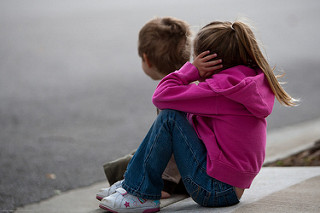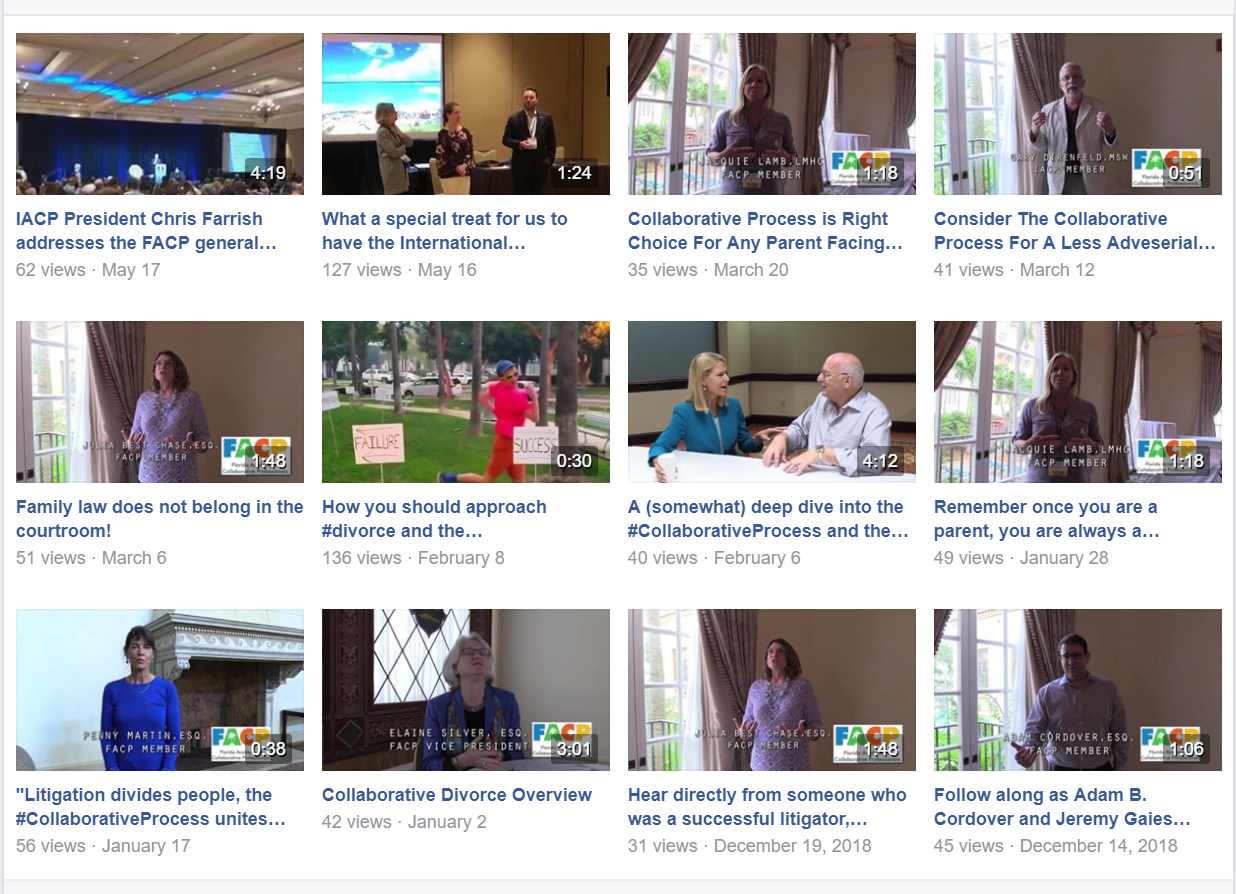What about my kids?
Whether you are facing an action for divorce, paternity, modification of final judgment, or any other custody proceeding, you want to know (i) how to best protect the best interests of your child and (ii) how to safeguard your rights as a parent. At Family Diplomacy we take the time to sit down with you, explain your options, and develop a personalized strategy to fit your needs.
Will I get custody?
Will I get custody?
Will I Get Custody of My Kids?
Every parent going through a divorce fears that they will not receive sufficient time or custody with their children. For parents who are used to seeing their children whenever they please, the thought of a third party ordering a schedule by which they have to abide can be nerve-wracking. Traditional Divorce Court - Judge Decides Custody If you decide to litigate your divorce in court, you will leave your destiny to a judge who only receives a snapshot glance at your life and parenting abilities. Outside factors will impact your case like the attorneys’ trial abilities, the mood and beliefs of the judge who is assigned to your case, the opinion of the experts which may be determined by which party is paying him, and how the parties and witnesses present themselves in court. So how do you ensure a positive result in your case? Keep the decision in your own hands. Divorces do not have to occur in court, and actually, most do not. There are several courtless divorce options that are available that leave these important decisions to you and your spouse. (more…)
Read More
Video: Do You Really Need “Sole Custody?”
In my Tampa office, parents come to me all of the time and say they want "sole custody." Maybe they are having an argument with the other parent. Maybe they just don't get along. So parents figure that the solution is to be the only one to have decision making authority over their child. In the video below, social worker Gary Direnfeld challenges the assumptions behind requests for sole custody. (more…)
Read More
What Is A Florida Parenting Plan?
Any Florida parent who is going through a divorce with children or otherwise dealing with child custody issues will need to have a parenting plan. A parenting plan is document that is either agreed upon by the parents or created by a judge that sets out each parents' rights and responsibilities. The Sixth Judicial Circuit (Pinellas and Pasco Counties) further describes a parenting plan as follows: It is the public policy of this state to assure that each minor child has frequent and continuing contact with both parents after the parents separate or the marriage of the parties is dissolved and to encourage parents to share the rights and responsibilities, and joys, of childrearing. Florida Statutes, section 61.13(2)(c). A parenting plan is a document developed and agreed to by the parents of a minor child, and approved by the court, or if the parents cannot agree, established by the court, which governs the relationship between the parents regarding the child (encompassing “custody”, “parental responsibility”, and “visitation”). A parenting plan may address issues such as the child’s education, health care, and physical, social, and emotional well-being, and must include a time-sharing schedule. The parenting plan must take into account the Uniform Child Custody Jurisdiction and Enforcement Act, the International...
Read More
When will I get to see the kids?
When Will I Get to See My Children?
Has your spouse petitioned for divorce and is now keeping your children from you? If so, you are likely wondering when you will get to see your children. There are several scenarios that could affect when you will be able to see your children. Traditional Litigation Approaches If your spouse simply refuses to allow you to see your children, and there is not yet a court order in place governing when each parent has time with the children, you may have to wait a few months before you see them. Of course, you have just as much right to your children as your spouse. But if your spouse is refusing you access, it likely isn’t in your children’s best interests to force the issue and cause an altercation. Depending on your situation, you may need to move for an emergency hearing to have the judge decide temporary timesharing as expeditiously as possible. Even in situations where a parent is denying the other parent access, a judge may require that parties mediate before allowing a temporary relief hearing to be set. (more…)
Read More
Are Florida Divorce Courts Anti-Dad?
Over the past few years, there has been a movement to overhaul the alimony and child custody laws of Florida and other states. This is because husbands and fathers have felt like they are under siege in the family law court system. They have a glimmer of hope that, if only the laws were changed, then maybe they could get the respect and dignity that they deserve when entering a courtroom. So this bring up a fundamental question: Are Florida's family law courts anti-father? (more…)
Read More
Sample Florida Child Custody Schedules
In each Florida family law case (such as divorce or paternity) that involves the custody of a child, Florida law requires that a parenting plan be established. One of the most important elements of a parenting plan is the child custody schedule, now known as a "time-sharing" schedule. Family Law Tip: You should never let a judge decide your child's time-sharing schedule. A judge does not know your family dynamics and bases such decisions on very limited information, and usually the judge is seeing parents, especially divorcing parents, at the worst time in their lives. Instead, you and your co-parent should use a private form of dispute resolution, such as collaborative family law. As I tell clients who come to my Tampa office, there are many different types of time-sharing schedules. Below are some samples provided by the 12th Judicial Circuit (which includes Sarasota and Manatee Counties). The parent who is listed in a box is the one whom the child will be staying with overnight: (more…)
Read More
What does the law look at for custody?
Custody: What Does The Law Consider?
Florida Statute § 61.13 lists the factors that the law will consider when developing a child custody, also known as time-sharing, schedule. One major factor is whether you will encourage a close and continuing relationship between the children and the other parent. The law considers your histories and personalities. Section 61.13 examines whether you will be reasonable when changes are required. The law also considers your ability to keep each other informed regarding important matters regarding the children. Florida law frowns upon parents who disparage the other in front of the children or bring the children into their disputes. Parental Responsibility and Child Custody Section 61.13 also discusses parental responsibilities and whether third parties will have decision-making authority. For example, if you work eighty hours a week, it may not be realistic for you to have custody the majority of the time. Another consideration is whether you will be able to participate in the children’s school and extracurricular activities. Another factor is whether you have demonstrated the capacity and disposition to determine, consider, and act upon the needs of the children as opposed to your own needs or desires. It is important to maintain stability as much as possible for the...
Read More
Florida Divorce and Fathers’ Child Custody Rights
Many people believe that, in Florida divorces, there is a legal presumption that mothers should get majority time-sharing (formerly known as primary custody) with the parties' children. This is simply not the case, as judges fashion Florida time-sharing schedules based solely on the best interests of the children, regardless of the gender of the parents. Florida Statutes Section 61.13(2)(c)1 states specifically that "[t]here is no presumption for or against the father or mother of the child or for or against any specific time-sharing schedule when creating or modifying the parenting plan of the child." So what factors do judges look at to determine children's best interests when shaping time-sharing schedules? (more…)
Read More
In A Florida Child Custody Case, Does It Matter That I Am Gay?
I have been seeing more clients who are coming out of the closet either during or following their divorce (or during a child custody case not related to divorce). Each client has asked whether the Florida court is going to take into consideration his or her sexual orientation. Though, in determining child custody matters, a Florida judge must take into consideration the "moral fitness" of the parents (see Florida Statutes Section 61.13(3)(f)), the court may not make a custody determination based solely on whether a parent is gay. In fact, a parent's sexual orientation should not be a determining factor unless it has a direct negative impact on the welfare of the child. (more…)
Read More
Does my child have a say?
Does My Child Have A Say In Custody?
So, you are thinking about divorce. You, like many parents, may wonder whether your child has a say in the custody (also known as time-sharing) schedule. Depending on your child’s age and maturity level, your child might have have some input in what your timesharing schedule should look like. However, a child under the age of 18 does not have the final say in a time-sharing schedule. How Your Child Can Have A Say In Custody Whether your child has a say may depend on whether you choose to litigate your case, or instead, participate in alternative dispute resolution like collaboration or mediation. In most litigated cases, a judge will not allow a child to participate in the proceedings. However, if you proceed with collaborative practice or mediation, your child may be able to participate if you and your spouse agree. If so, your child may attend a portion of the mediation or collaborative meeting. The mediator or collaborative facilitator will help determine the appropriate forum for the child to express his wishes and whether you and your spouse should be present. (more…)
Read More
Video: What Is A Collaborative Child Specialist?
Collaborative family law is a process that can be tailored to your family's specific needs. In all collaborative cases, issues related to divorce are discussed peacefully and respectfully in private conference rooms rather than confrontationally in public courtrooms. Each spouse has their own attorney - who focuses exclusively on helping his or her client reach an out-of-court agreement - on whom the spouse can rely to provide advice and guide them throughout. Oftentimes, experts are brought into the collaborative process so that the clients can reach a comprehensive agreement that deals not only with legal issues, but also emotional and financial resolutions. Experts end up making the process much more efficient by being able to handle issues far more quickly than attorneys are able to. One option that families may want to consider is whether to bring in a child specialist. The short video after the jump, produced by Cypress Collaborative Divorce, discusses the role of the child specialist. (more…)
Read More
Who gets the kids on holidays?
What happens during Christmas or Thanksgiving?
Sample Christmas Custody Schedule
Christmas can be a difficult time when you are divorcing, as this may be the first time that you are not spending the holiday together as a family. One way to make it a bit easier is to work with your co-parent and come up with a Christmas Custody Schedule that works for your kids. There are many different ways in which families celebrate Christmas, and below you will find some sample language to consider for your parenting plan. Alternating Christmas Custody Schedule Mother will share time with the children for the entire winter break during odd-numbered years, and Father will share time with the children for the entire winter break during even-numbered years. (more…)
Read More
Who Gets The Kids On Holidays?
The holidays are such a magical time of year, especially if you have children. But if you are going through a divorce, your family will need to establish new traditions. Holidays must now be split between two family units. Until the judge orders a holiday schedule or you and your ex reach an agreement about it, each party is usually equally entitled to a holiday. This can create a lot of stress during an already stressful, busy time of year. So how do you determine how holidays should be split? Mediation and Collaboration If you choose a courtless divorce option like mediation or collaboration, professionals will assist you and your spouse in creating a holiday schedule that works best for both of you. It may be more important for your side of the family to celebrate certain holidays than it is for your spouse. Likewise, there are probably some holidays you don’t care about that are important to your ex. One or both of you may want to have the opportunity to travel during certain holidays. All of these matters can be addressed more thoroughly if you participate in a form of alternative dispute resolution than if you let the...
Read More
Sample Christmas Custody Schedules
If you are divorcing in Tampa Bay and you have children, Florida law requires that a parenting plan be created. The parenting plan outlines parental responsibility (decision-making authority) along with a time-sharing (custody) schedule. The time-sharing schedule should not only address where the children stay during the school year and in summer months, but also how holidays, such as Christmas, are to be handled. Below are some sample Christmas time-sharing schedules: (more…)
Read More
Garon: 8 Tips for Co-Parenting During the Holidays
Winter break can be one of the most difficult times for both children and parents to cope with divorce. We see Christmas and New Years cheer and celebration everywhere as we are dealing with our own internal and external stressors that make the mere sight of such images so painful. However, we must dedicate all of our strength to keep this period of time as happy and stable as possible for our children. Risa Garon, a licensed clinical social worker, collaborative law mental health professional, and Executive Director of the National Family Resiliency Center, Inc., provides tips for co-parenting during the holidays: What can you as a parent handle? Be honest with yourself and how you feel. Be honest with your children about your limitations and what you can handle. Approach them in a way that doesn't burden them with your feelings. Ask them what would help them during the holidays. Recognize that rituals are symbolic and often treasured by children and adults. If possible, try to have some of your family's traditional rituals and include your children in creating new ones. (more…)
Read More
What should I tell my kids?
What should I tell my kids?
What Should I Tell The Kids About Our Divorce?
If you have children and are going through a divorce, your biggest concern is likely how your kids will be affected. When is the best time to tell your children, and how much should you share with them? Your Children Will Know Your children will know that something is going on, and leaving them in the dark may cause more apprehension and stress in them than just being upfront. Establish a united front early in the process, and tell your children together that you are separating. Assure them that while things will be different, everything will be okay. Alleviate their fears that your divorce is in any way their faults. Remind them often during the process that everything will fine and it is not their faults. (more…)
Read More
Protecting Your Children from High Conflict Divorce
Divorce court here in Florida is a terrible way to resolve disputes. Divorce litigation is an adversarial proceeding where husband is pitted against wife, mother is pitted against father. And it is the children who end up suffering the most. But don't take my word for it. Tampa psychologist Stephanie Moulton Sarkis writes about the consequences of high conflict divorce on children: (more…)
Read More
How do I know if my kids are doing ok?
LGBTQ+ Friendly Family Law Firm in Florida
If you are a member of the LGBTQ+ community in Florida, you might have found yourself wondering about the best path forward when it comes to family law matters. We get it—navigating the legal landscape can be confusing and overwhelming, and now is not the time for a lawyer to judge you or your family. But fear not! At Family Diplomacy, we've got your back. Our mission is to provide you with an open, friendly, and supportive environment as we work together to tailor LGBTQ+ Family Law solutions that perfectly suit your unique needs. And we help families throughout the State of Florida. Crafting Harmony through Collaborative Family Law Picture this: you've got personal family matters to resolve, but you're dreading the thought of entering a public adversarial court system. Guess what? You don't have to go that route. Family Diplomacy recommends a much more peaceful alternative for Florida and Tampa Bay LGBTQ+ spouses and partners: Collaborative Family Law. Here's the scoop: in this process, attorneys are on board solely to help you reach private resolutions. We're actually barred from fighting before a judge. Plus, there's a facilitator—usually a trained mental health professional—who's there to keep everyone focused on what's...
Read More
Video: Therapist Discusses Collaborative Divorce and Kids
Kids are often caught in the middle of divorce. Their parents are fighting, and many times the kids' needs get ignored. Fortunately, not all divorce processes are the same. Collaborative divorce gives parents the opportunity to work in a non-adversarial setting and develop a parenting plan tailored to meet children's needs. In the video below, therapist Jacquie Lamb, LMHC, discusses collaborative divorce and children. This video was produced by the Florida Academy of Collaborative Professionals. (more…)
Read More
How Do I Know If My Kids Are OK During My Divorce?
Divorce is not only stressful and life changing for you, but also for your children. As a parent, you want your children to come out of your divorce as unscathed as possible. How do you ensure that happens? You are likely more emotional and busier than ever during your divorce process. However, now is the time to stay connected with your children. Spend special time with them doing activities that they enjoy. Check in with their teachers, coaches, and friends to make sure that they are doing okay. (more…)
Read More
Disparaging The Other Parent Hurts Your Child And Your Florida Child Custody Case
Rosalind Sedacca, a divorce and parenting coach and author, writes about why parents should not bash one another in front of their children: When you put down their other parent, your children are likely to interpret it as a put-down of part of them. When both parents are guilty of this behavior, it can create a great confusion along with a sense of unworthiness and low self-esteem. "Something's wrong with me" becomes the child's unconscious belief. *** (more…)
Read More
Helping Teens Cope With Divorce
I came across a great article at the Divorce Saloon concerning how parents with teenagers can help their children deal with divorce. Towards the bottom of the article the author, Brenda Monteau, provides these five tips: 1) Set boundaries. Just because you are divorced doesn’t mean that you allow your teen to do whatever he or she wants. Don’t let your guilt of “breaking up the family” get in the way of parenting. Just because teens are older than younger kids doesn’t mean they don’t need boundaries, or that they don’t need their parents to act like parents. (more…)
Read More
Special Needs Children and Divorce
California family law attorney Lisa Helfend Meyer recently discussed particular issues that arise in divorce cases involving special needs children: A parenting plan for the typical child may not be appropriate for an autistic child or one with other developmental issues. For example, it's not unusual for the typical 3 year-old child to be able to have overnight stays with the non-custodial parent. She can understand the concept of time and that she will see her other parent again. The special-needs child often has difficulty with transitions, she is comforted by the familiar and doesn't like changes in environment. Likewise, she may not be unable to express herself verbally nor to understand abstract concepts like time. Custody and visitation decisions for a special-needs child must take into account many issues like these. (more…)
Read More
How do we tell the kids?
How Do I Discuss My Divorce With My Child?
Once a couple makes the decision to separate or divorce, one of the most difficult steps will be to discuss this decision with a child. Risa Garon, a licensed clinical social worker, certified mediator, and Executive Director of the National Family Resiliency Center, Inc., provides the following advice regarding how to discuss an impending separation or divorce with a child: 1. Before you tell the children, speak to your spouse and decide what you will tell the children. Both parents should have the opportunity to speak. 2. Say what you think will be most helpful to them. Many parents want to tell exactly what happened in their adult relationship to their children. Parents can explain to their children how what they want to tell them will help them in understanding the separation. (more…)
Read More
How do we shield the kids from divorce?
Tampa Collaborative Divorce: A More Child-Friendly Divorce
The fact is that divorce is difficult. Emotions are raw, family life is uprooted, and life becomes strained. And children are caught in the middle. Attorneys in Tampa Bay litigated cases are often obligated to not only focus on showing their clients in the most positive light but also shining the spotlight on the opposing parties' parental flaws. This further frays relationships with consequences to the children. But there is an alternative. Collaborative divorce is a process where the clients agree not to air their dirty laundry in the court system but instead to negotiate respectfully in private offices of attorneys and other professionals. A neutral facilitator, who usually is a licensed mental health professional, is utilized to ensure that the clients focus on the future and on what is most important: the children. I recently found a Chicago Tribune article which discusses collaborative divorce and it's focus on children: If you've gone through a divorce, you know how challenging it can be to keep your emotions in check. Add children to the mix and the damage can be devastating. But experts say more divorcing couples are seeing the benefits of putting down the boxing gloves and placing their children's...
Read More
Treatment of Children in Hillsborough County Family Law Cases
When a person files for divorce (or other family law action involving children) in Tampa, he or she will be provided with a temporary standing order which outlines how he or she should treat children during the matter. The temporary standing order provides the following guidance: The safety, financial security, and well being of the children involved in this case are the judge’s primary concern. It is the law that, except in certain rare circumstances, both parents will share parental responsibility for all minor children involved in this case. The law requires parents to share the children’s time and to participate together in making all important decisions concerning the children. The law expects parents to put aside their feelings and cooperate on all decisions involving the children. The following guidelines apply: A. Children have a right to a loving, open and continuing relationship with both parents. They have the right to express love, affection and respect for one parent in the presence of the other parent. (more…)
Read More
Helping Kids Cope With Divorce
School counselor Leslie King and teacher Daryl Sollerh offer some tips at the Huffington Post on how to help children cope with their parents' divorce: First, let's face it: No one is a saint. No one is immune to the pain, challenges and uncertainties a separation or divorce can visit on a family -- especially not children. So even though mom and dad may be moving through some of the most potentially stressful and sad periods of their own life, they still are somebody's mom or dad, and must try to find a way to help their child, even if they themselves feel as if they are not getting much help from friends or the world. Should your child rage, do your best not to take it personally, even when it is directed at you. Try to give yourself the space and time to recognize that they too need to vent their feelings, especially the most gut-wrenching ones. It is better that they release the feelings inside them as best they can, instead of bottling them up, which could prove far more damaging in the long run. (more…)
Read More












